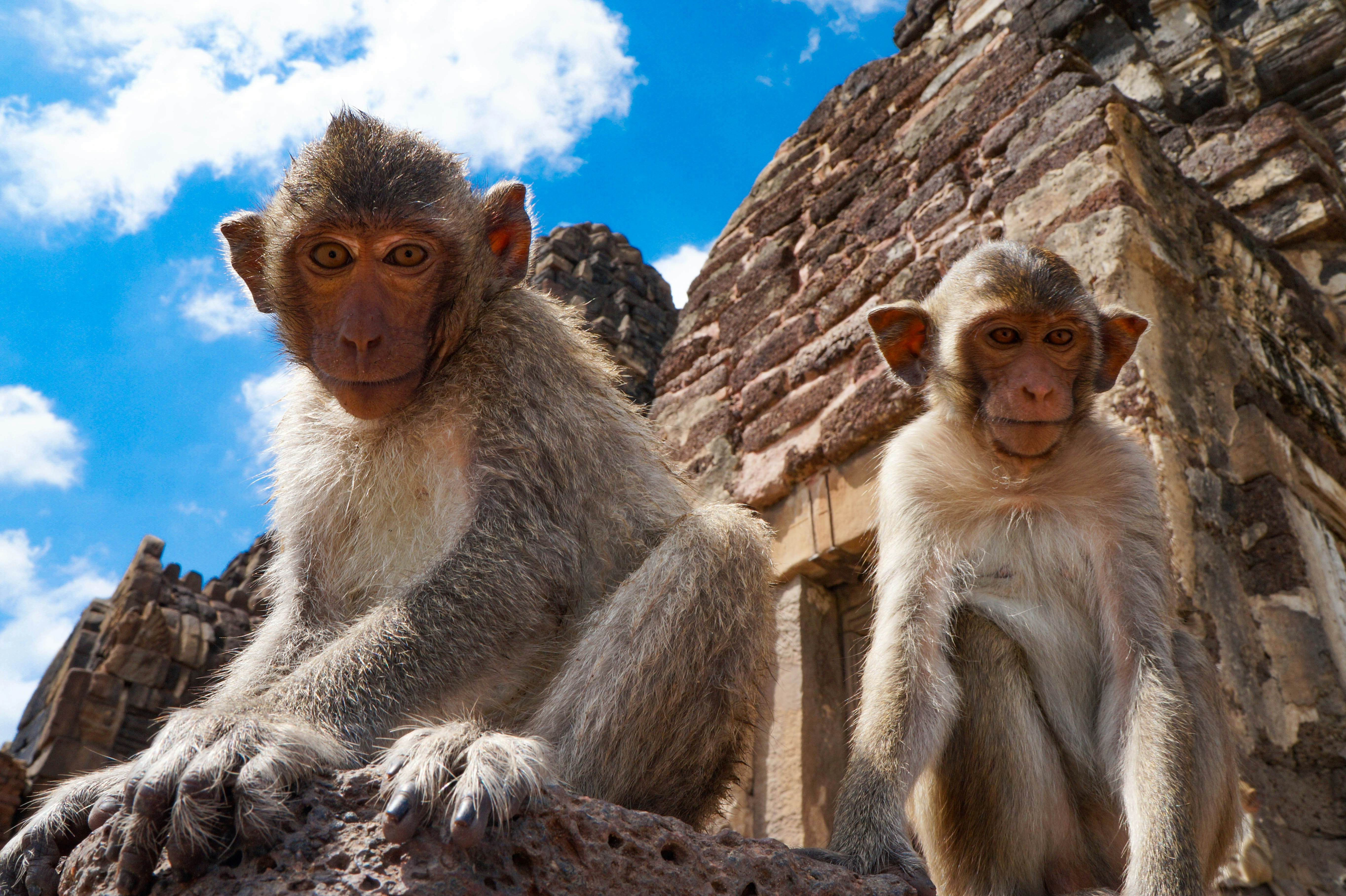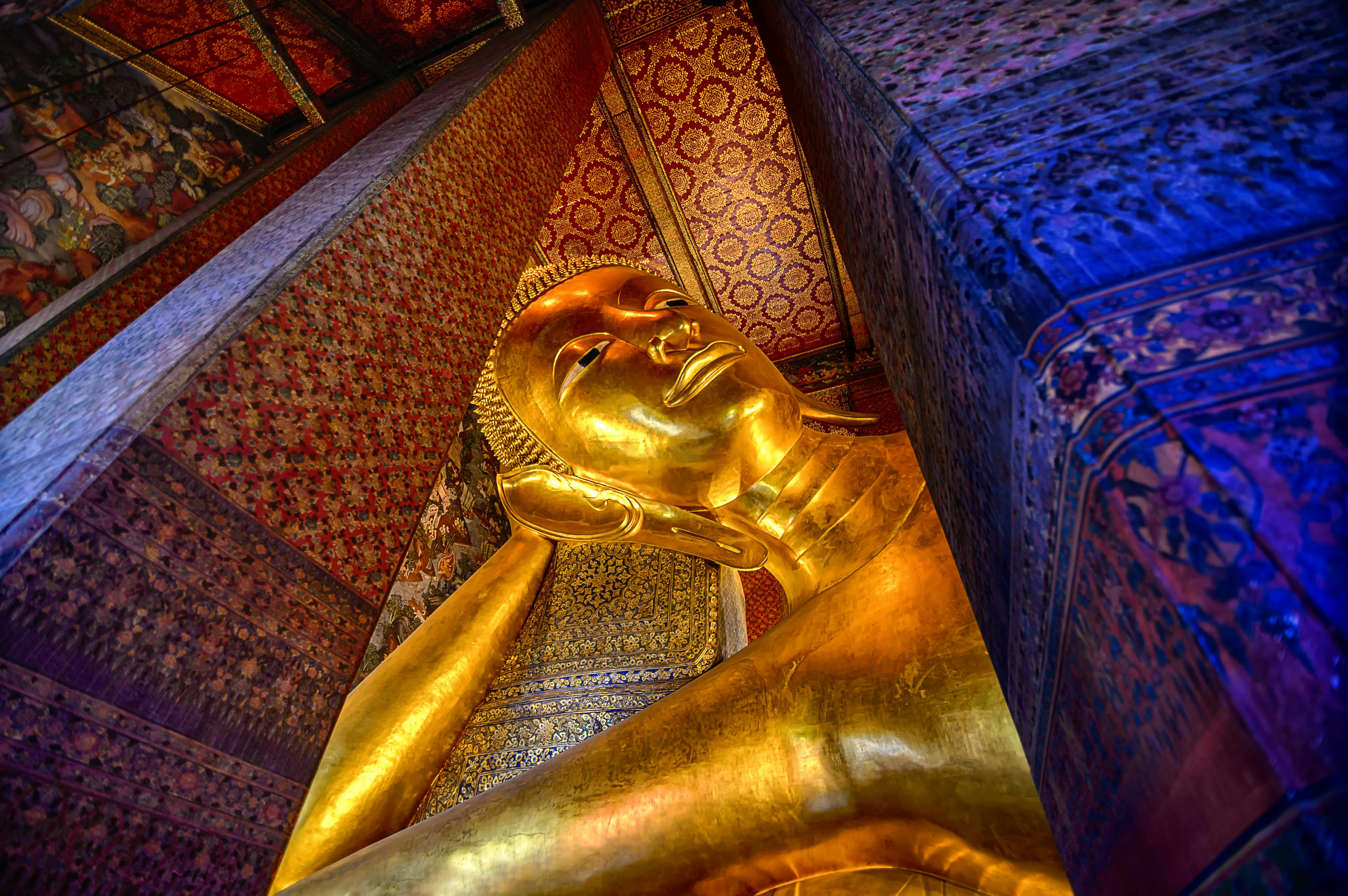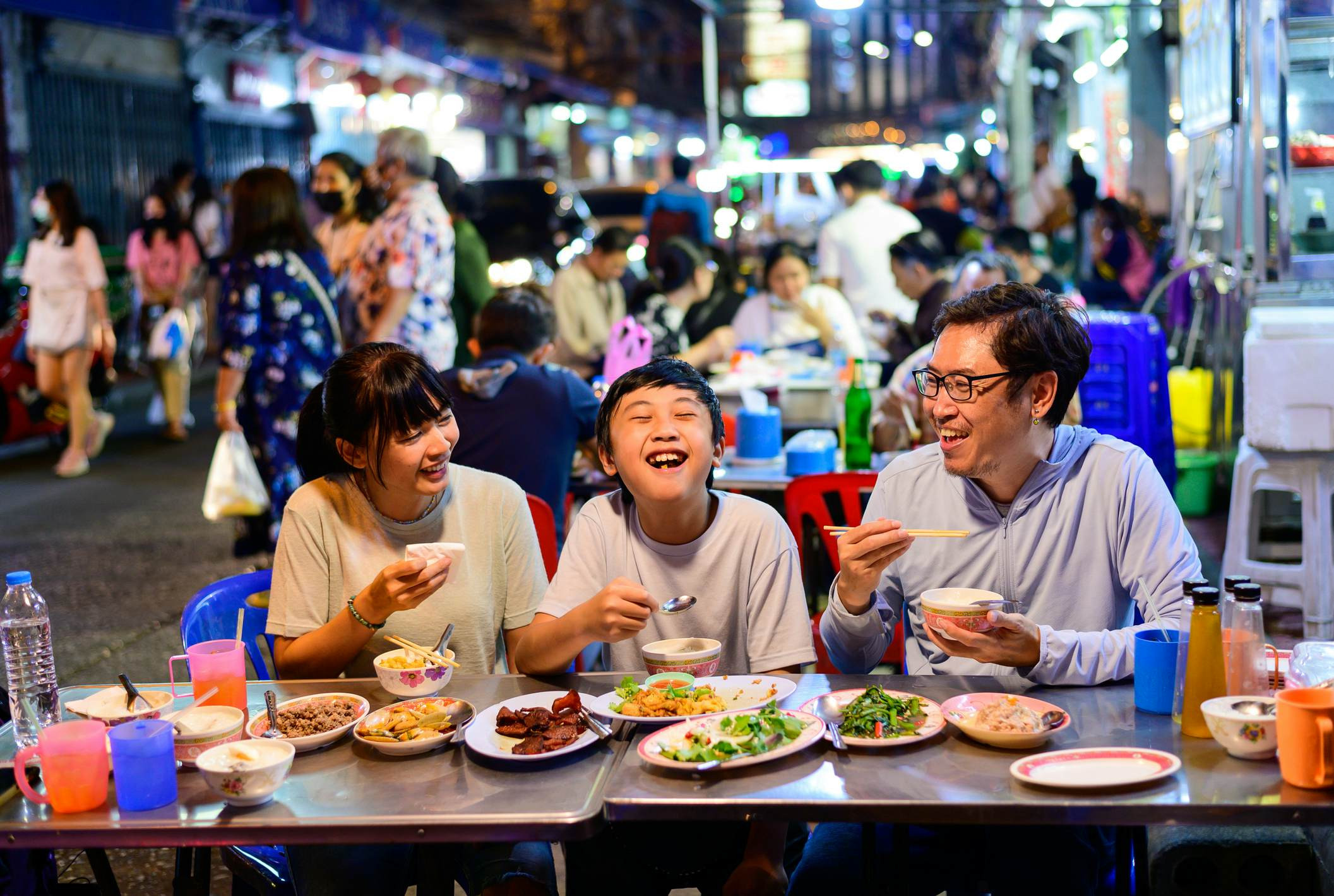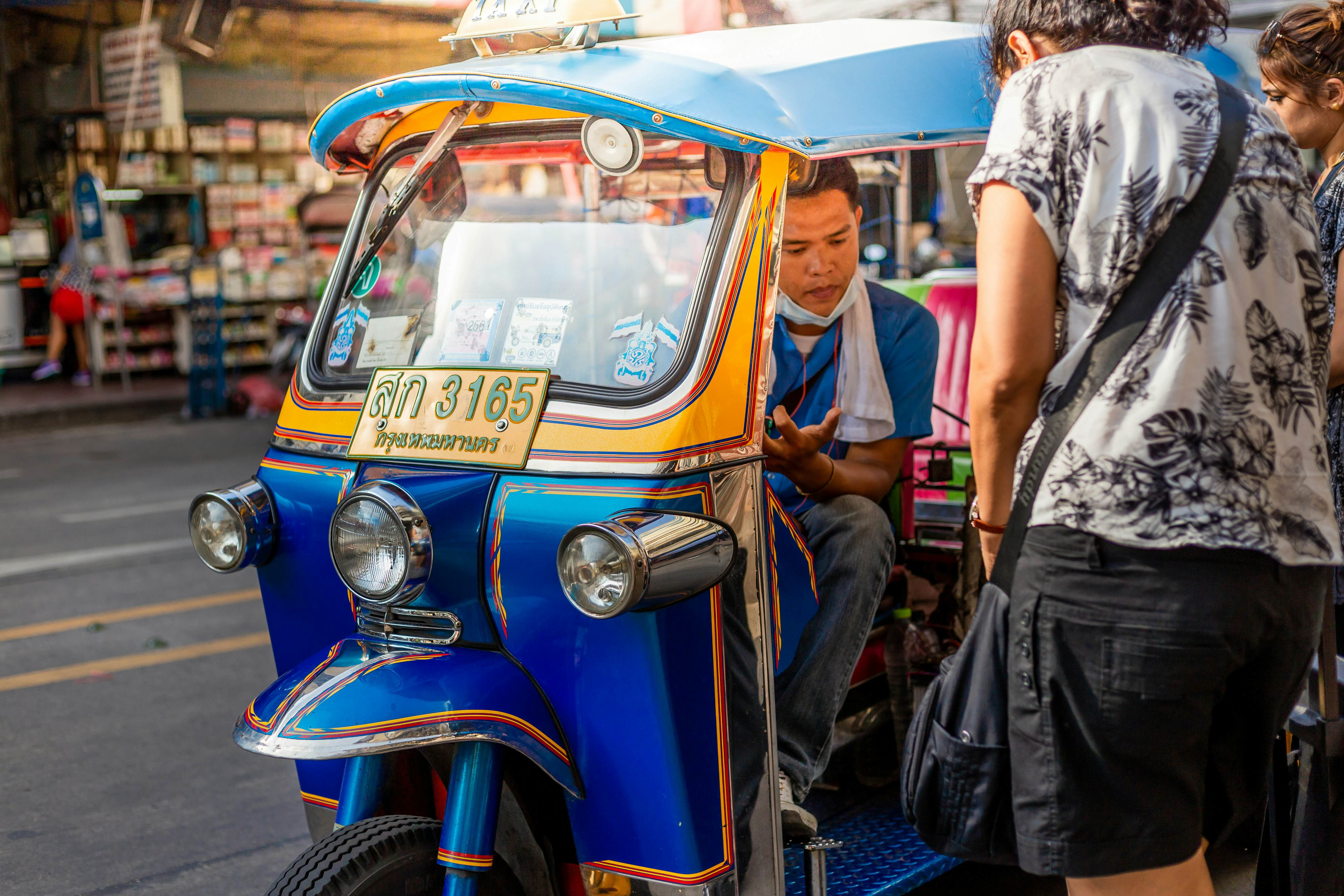Thailand, renowned for its stunning landscapes, vibrant culture, and delectable cuisine, is a top travel destination. SIXT.VN is here to help you navigate the wonders of Thailand, ensuring a seamless and unforgettable adventure. Dive into the heart of Southeast Asia with practical travel tips, cultural insights, and essential information for an enriching experience, whether you’re exploring ancient temples, relaxing on pristine beaches, or savoring authentic Thai flavors.
1. What Should Travelers Know About Thailand’s Rainy Season?
The rainy season in Thailand varies by region, typically occurring from June to October in the northern, central, and southwestern areas, and from October to December in the southeast coast and the Gulf of Thailand. During these months, expect heavy showers and storms that can affect travel plans, especially sea travel.
Traveling during the rainy season has its perks, such as lower prices and fewer crowds, but it’s essential to be aware of potential disruptions. Some accommodations may close, and ferry services to islands like the Tarutao archipelago might be suspended. According to the Tourism Authority of Thailand (TAT), visiting during the green season offers a unique perspective on the country’s lush landscapes and vibrant local life. Packing appropriate wet weather gear is crucial for a comfortable trip.
2. What Vaccinations Are Recommended Before Traveling to Thailand?
Before traveling to Thailand, it is recommended to get vaccinations against tetanus and hepatitis A for your health and safety. Rabies shots are also advisable, especially if you plan to interact with animals.
 Monkeys on a temple in Lopburi, central Thailand
Monkeys on a temple in Lopburi, central Thailand
Malaria is present along the borders with Laos, Cambodia, Myanmar, and Malaysia. If you are traveling to these regions, consult with your doctor about anti-malarial prophylaxis, such as atovaquone/proguanil or doxycycline, and take precautions to avoid mosquito bites. According to the World Health Organization (WHO), ensuring you’re up-to-date on recommended vaccinations can significantly reduce your risk of contracting preventable diseases during your travels.
3. Is it Necessary to Book Activities in Advance for a Trip to Thailand?
Booking must-do activities in advance is highly recommended, especially during the peak tourist season from November to March or during religious holidays to guarantee availability. Popular activities like boat journeys, train trips, treks, tours, and unique accommodations often fill up quickly.
During the rainy season, always confirm that the places you intend to visit are open by calling or emailing ahead. According to TripAdvisor, travelers who book in advance often secure better deals and avoid last-minute disappointments. SIXT.VN can help you plan and book your activities, ensuring a smooth and enjoyable experience.
4. What Etiquette Should I Follow When Greeting People in Thailand?
When greeting locals in Thailand, the standard greeting is the wai, a respectful dip of the head with the hands held palms together in front of the chest. It is important to respect local customs to show cultural sensitivity.
Avoid initiating a handshake unless the other person offers their hand first. If you are invited into a Thai home, remove your shoes before entering and avoid pointing the soles of your feet towards anyone. According to a study by the Tourism Council of Thailand (TCT), respecting local customs enhances the travel experience and fosters positive interactions with the local community.
5. How Can I Show Respect for Buddhism in Thailand?
To show proper respect for Buddhism in Thailand, remove your footwear before entering any Buddhist structure and wear clothing that covers the shoulders, upper arms, and upper legs. Buddhism is a deeply revered religion in Thailand.
Never point the soles of your feet towards any Buddhist image or monk, and avoid touching Buddha statues on the head. Give way to monks when walking on footpaths and refrain from sitting next to them on public transport. It is also taboo for a woman to touch a monk or their belongings. According to the National Office of Buddhism, adhering to these guidelines demonstrates respect for the cultural and religious values of Thailand.
 The Reclining Buddha inside the Wat Phra Chetuphon Vimolmangklararm Rajwaramahaviharn in a Buddhist temple complex of Wat Pho in the Phra Nakhon District, Bangkok,
The Reclining Buddha inside the Wat Phra Chetuphon Vimolmangklararm Rajwaramahaviharn in a Buddhist temple complex of Wat Pho in the Phra Nakhon District, Bangkok,
6. What is Considered Appropriate Dress in Thailand?
Dressing modestly is appreciated in Thailand, where both Thai women and men typically avoid revealing outfits that show a lot of skin. While swimsuits are acceptable at the beach, cover up with a sarong or fisher’s pants when away from the sand.
Ensure your shoulders are covered when visiting religious sites. Topless or nude sunbathing is frowned upon and can attract unwanted attention. According to the Ministry of Culture, dressing respectfully helps maintain the cultural norms and traditions of Thailand.
7. What Should I Know About the Monarchy in Thailand?
Respect for the monarchy is taken extremely seriously in Thailand, and lèse-majesté (maligning the royal family) is a criminal offense. It is crucial to understand the importance of this cultural aspect.
Never show disrespect towards the monarch or depictions of the royal family, including on money. According to Thai law, any action or speech perceived as disrespectful to the royal family can result in severe penalties.
8. What is Mealtime Etiquette in Thailand?
When dining out in Thailand, dishes tend to arrive on the table simultaneously and are placed in the center for everyone to share. This communal style of dining is a key part of Thai culture.
Thailand abandoned chopsticks in the 19th century; instead, you’ll typically receive a spoon and fork, but no knife. Most dishes are prepared as bite-sized portions, eliminating the need for a knife. Sticky rice is often bundled into balls and eaten with the fingers. According to the Thai Restaurant Association, sharing food is a way to foster community and enjoy a variety of flavors.
9. Is it Easy to Find Vegetarian Food in Thailand?
Finding vegetarian food in Thailand can be challenging, as fish sauce, oyster sauce, and egg are commonly used in cooking. Be mindful of hidden ingredients in seemingly vegetarian dishes.
The safest option for vegetarians is to seek out Indian-owned vegetarian restaurants or establishments serving kin jay Buddhist cuisine. If unsure, ask if the food is jay, as the term mang sà wí rát only means the food doesn’t contain pieces of meat or fish but may still include animal products. According to a survey by the Vegetarian Society, clearly communicating your dietary needs is essential when ordering food in Thailand.
 Asian family enjoy eating food on street food restaurant with crowd of people at Yaowarat road, Bangkok
Asian family enjoy eating food on street food restaurant with crowd of people at Yaowarat road, Bangkok
10. What Health Risks Should I Be Aware of in Thailand?
Travelers in Thailand commonly experience stomach bugs. To avoid this, never drink tap water, wash your hands before eating, and choose busy eating establishments. Exercise caution with ice, unwashed or unpeeled fruit, and uncooked vegetables to prevent illness.
If you become unwell, seek out private hospitals in larger cities rather than public hospitals for better care. Mosquito bites can easily become infected in Thailand’s tropical climate. Bring mosquito repellent and use mosquito nets. Rabies is also a risk, so seek medical attention if bitten by a dog, cat, or monkey. According to the Department of Disease Control, practicing good hygiene and taking preventative measures can significantly reduce health risks.
11. What is the Legal Situation Regarding Drugs in Thailand?
In June 2022, marijuana and hemp were removed from the Category 5 narcotics list in Thailand; however, restrictions still apply, and smoking marijuana in public is not recommended. Understand the current laws to avoid legal issues.
Crossing borders with Class A drugs carries the death penalty, and possession of even small quantities can lead to a lengthy prison sentence. Smoking in public can also result in heavy fines. If you take prescription medicines, ensure they are allowed into Thailand before traveling. According to the Narcotics Control Board, strict drug laws are enforced, and ignorance of the law is not an excuse.
12. How Can I Avoid Being Overcharged as a Tourist in Thailand?
Tourists are often charged inflated prices for tuk-tuks and unmetered taxi rides in Thailand. Research typical costs for transportation to ensure fair pricing.
Ask locals how much journeys should cost and use that as a benchmark. Major tourist sites are popular areas for cab drivers and touts who may try to lead you to dubious souvenir shops, fake “tourist offices,” and overpriced accommodations, where you’ll pay more to cover their commission. Book transport directly with operators to avoid scams from unscrupulous travel agents. SIXT.VN offers reliable and transparent booking services to help you avoid these issues.
 A driver in a blue and white tuk-tuk, picking up a passenger
A driver in a blue and white tuk-tuk, picking up a passenger
13. What Should I Know About Sex Work in Thailand?
Thailand’s sex industry may be encountered whether you seek it out or not. Be aware of this aspect of the culture and how to handle it respectfully.
Single male travelers (and even couples) may be approached by sex workers or touts. Be prepared with a firm refusal. Some bars, restaurants, and karaoke venues operate as fronts for sex work, indicated by red or pink strip lights, skimpily dressed female staff, and numerous foreign male customers. According to the United Nations, being aware of the issue is the first step to making informed and ethical choices.
14. What Precautions Should I Take Regarding Political Protests in Thailand?
Thailand can experience political protests. Stay informed and avoid potential disruptions.
When tensions arise between the government and opposition groups, protests can lead to blockades, flight cancellations, and violence. Monitor local news sites for updates on political situations and avoid protests and potential flashpoints. The Ministry of Foreign Affairs advises travelers to stay informed and exercise caution during periods of political unrest.
15. Are There Any Areas in Thailand Where Travel Should Be Avoided?
The far south of Thailand, along the Malaysian border, has faced a separatist insurgency since the 1940s. Check government advisories before planning your trip to ensure safety.
Most foreign governments advise against traveling to the districts of Yala, Pattani, Narathiwat, and parts of Songkhla due to ongoing security concerns. According to travel advisories issued by the U.S. Department of State, these areas are considered high-risk and should be avoided.
16. What Insurance Do I Need to Rent a Scooter in Thailand?
Many travelers rent scooters or motorcycles in Thailand. Ensure you are properly insured to avoid financial and legal issues.
Confirm that your home driving license covers the vehicle you intend to rent and carry your passport (or a copy of the ID pages) in case the police request it. Always wear a helmet, ride cautiously, and ensure the rental includes liability insurance. Annually, numerous tourists are injured in motorcycle and scooter accidents in Thailand. Always give way to larger vehicles and watch out for livestock, potholes, and other road hazards. According to the Thai Roads Foundation, having the correct insurance and practicing safe driving habits are crucial for avoiding accidents.
17. What Should I Do in the Event of a Natural Disaster in Thailand?
Thailand is susceptible to natural disasters such as earthquakes, tsunamis, flooding, landslides, and cyclones during the rainy season. Prepare for potential emergencies and know how to respond.
Heed official advice in the event of a natural disaster and contact your embassy for the latest information on evacuation procedures. The Department of Disaster Prevention and Mitigation recommends staying informed through local news and following instructions from authorities.
18. How Can SIXT.VN Enhance My Travel Experience in Thailand?
SIXT.VN offers a range of services tailored to make your trip to Thailand seamless and enjoyable, from airport transfers to curated tour packages. Discover the advantages of using SIXT.VN.
SIXT.VN provides convenient airport transfer services, ensuring a hassle-free start and end to your journey. With a variety of transportation options, you can travel comfortably and safely. Our reliable booking system and professional drivers guarantee a smooth experience.
SIXT.VN offers a diverse selection of accommodations to suit every budget and preference. Whether you’re looking for luxury hotels, boutique guesthouses, or budget-friendly hostels, you can find the perfect place to stay through our platform. Enjoy competitive rates and secure booking options.
SIXT.VN provides curated tour packages that showcase the best of Thailand. Explore ancient temples, vibrant markets, and stunning natural landscapes with our expertly designed tours. Our experienced guides offer valuable insights and ensure a memorable experience.
SIXT.VN assists with booking flights to and from Thailand, providing access to a wide range of airlines and competitive prices. Find the most convenient and cost-effective travel options for your trip.
With SIXT.VN, you can expect dedicated customer support throughout your journey. Our team is available to assist with any questions or concerns, ensuring a stress-free travel experience. Contact us via phone, email, or WhatsApp for prompt and reliable assistance.
19. What Are Some Common Scams to Watch Out for in Thailand?
Being aware of common scams can help you avoid unpleasant situations and protect your money. Learn about typical scams in Thailand.
Gem Scams: Be wary of individuals who approach you offering amazing deals on gems or jewelry. These are often overpriced or fake. Always purchase from reputable stores.
Tuk-Tuk Scams: Tuk-tuk drivers may offer extremely low fares but then take you to shops where they earn a commission on your purchases, or they may try to overcharge you significantly.
Fake Tourist Information Centers: These centers may provide misleading information about tours, accommodations, or transportation to direct you to businesses that pay them commissions.
Motorbike Rental Scams: Some rental shops may try to charge you for pre-existing damage to the motorbike upon return. Thoroughly inspect the vehicle before renting and take photos or videos as evidence.
ATM Skimming: Be cautious when using ATMs, especially in tourist areas. Check for any signs of tampering and cover the keypad when entering your PIN.
20. What Are Some Essential Thai Phrases to Learn Before Traveling?
Learning a few basic Thai phrases can greatly enhance your interactions with locals and show respect for the culture. Here are some essential phrases to get you started:
| Phrase | Thai Script | Pronunciation | Meaning |
|---|---|---|---|
| Hello | สวัสดี | Sà-wàt-dee | Hello |
| Thank you | ขอบคุณ | Kòp-khun | Thank you |
| You’re welcome | ไม่เป็นไร | Mâi-pen-rai | You’re welcome |
| Excuse me | ขอโทษ | Khŏr-tôht | Excuse me |
| How much? | ราคาเท่าไหร่? | Ra-kaa thâo-rài? | How much? |
| Yes | ใช่ | Châi | Yes |
| No | ไม่ใช่ | Mâi châi | No |
| Delicious | อร่อย | À-ròi | Delicious |
| Where is the toilet? | ห้องน้ำอยู่ที่ไหน | Hông-náam yòo-thîi-nǎi? | Where is the toilet? |
| Can you speak English? | พูดภาษาอังกฤษได้ไหม | Pôot paa-săa ang-grìt dâi măi? | Can you speak English? |
According to the Ministry of Tourism and Sports, even a few basic Thai phrases can significantly improve your interactions with locals and enrich your travel experience.
FAQ About Tourism in Thailand
1. Is Thailand a safe country for tourists?
Thailand is generally a safe country for tourists, but it’s essential to be aware of common scams and take precautions to protect your belongings. Avoid traveling to high-risk areas such as the far south along the Malaysian border.
2. What is the best time to visit Thailand?
The best time to visit Thailand is during the cool and dry season, which runs from November to early April. The weather is pleasant, making it ideal for exploring the country’s attractions.
3. Do I need a visa to enter Thailand?
Many nationalities can enter Thailand without a visa for tourism purposes, typically for stays of up to 30 days. Check the specific visa requirements based on your nationality before traveling.
4. What currency is used in Thailand?
The currency used in Thailand is the Thai Baht (THB). Credit cards are widely accepted in major cities and tourist areas, but it’s a good idea to carry some cash for smaller establishments and markets.
5. What are some must-visit attractions in Thailand?
Some must-visit attractions in Thailand include the Grand Palace and Wat Arun in Bangkok, the ancient city of Ayutthaya, the beaches of Phuket and Krabi, and the cultural sites of Chiang Mai.
6. What is the local transportation like in Thailand?
Local transportation options in Thailand include taxis, tuk-tuks, buses, and trains. In Bangkok, the BTS Skytrain and MRT subway are efficient ways to get around the city.
7. What are some cultural norms to be aware of in Thailand?
It’s important to dress modestly when visiting temples, remove your shoes before entering someone’s home, and avoid touching anyone’s head. Showing respect for the monarchy is also crucial.
8. What should I pack for a trip to Thailand?
Pack lightweight and breathable clothing, sunscreen, insect repellent, a hat, and comfortable walking shoes. If you plan to visit temples, bring clothing that covers your shoulders and knees.
9. How can I stay connected to the internet in Thailand?
You can purchase a local SIM card with a data plan upon arrival at the airport or in major cities. Wi-Fi is also available in many hotels, cafes, and restaurants.
10. What kind of food should I try in Thailand?
Don’t miss out on trying classic Thai dishes such as Pad Thai, Green Curry, Tom Yum soup, and Mango Sticky Rice. Street food is also a must-try for an authentic culinary experience.
Planning your trip to Thailand with SIXT.VN ensures a seamless and enriching experience. From airport transfers to curated tour packages, we provide the services and support you need to explore the wonders of Thailand with confidence. Contact SIXT.VN today via Hotline/WhatsApp: +84 986 244 358 or visit our website SIXT.VN at Address: 260 Cau Giay, Hanoi, Vietnam, and embark on your unforgettable Thai adventure.



